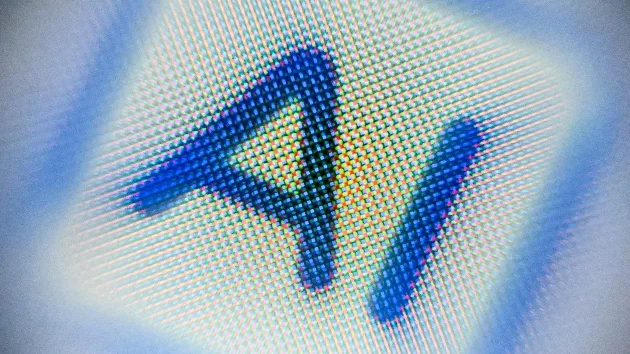
(NEW YORK) — Generative artificial intelligence companies capable of generating creative content are also said to be disrupting the livelihoods of creatives around the world, according to a group of creatives speaking out publicly about the issue.
“The unlicensed use of creative works for training generative AI is a major, unjust threat to the livelihoods of the people behind those works, and must not be permitted, a ” statement signed by 11,500 actors, musicians, authors, photographers, and composers from across the world, read.
Julianne Moore, Kevin Bacon, Thom Yorke and Abba’s Björn Ulvaeus, are among the tens of thousands of creatives who have signed this open letter calling for these companies to stop indiscriminately training on content they say should be licensed.
“This is a major issue for many of the artists, musicians, actors, authors, and other creators whose work is being exploited by AI companies,” said Ed Newton-Rex, a former AI executive who released the statement.
As a former head of audio at Stability AI, Newton-Rex is well acquainted with the internal data training practices of generative AI companies. He resigned over the company’s belief that training their AI models on copyrighted content without licensing it constitutes “fair use.”
Generative AI models have generally scrapped as much content as they could from the internet, downloaded it and trained their model to be able to create new work that is in the style of the work it trained on, Newton-Rex told ABC News.
“None of this revenue is coming back to the original artists,” explained Overlai founder Luke Neumann in a blog post about his new mobile app which aims to protect photography in the age of AI.
Neumann, who also signed the letter, launched the free app Overlai with world-renowned photographers Paul Nicklen and Cristina Mittermeier, when they noticed text-to-image generators could easily replicate the unique styles of both photographers. And, Neumann stresses the amount of work that goes into conservationist photography – the cost of travel and spending weeks, sometimes months in a location documenting a delicate ecosystem.
“I think AI companies really need to think long and hard about like how long they’re going to need organic data and if they want to be messing with these fragile business models of the people out there capturing this stuff,” Neumann to ABC News.
Several lawsuits from creatives ranging from writers to musicians to comedians have piled up against some of the biggest generative AI companies for copyright infringement.
Copyright © 2024, ABC Audio. All rights reserved.